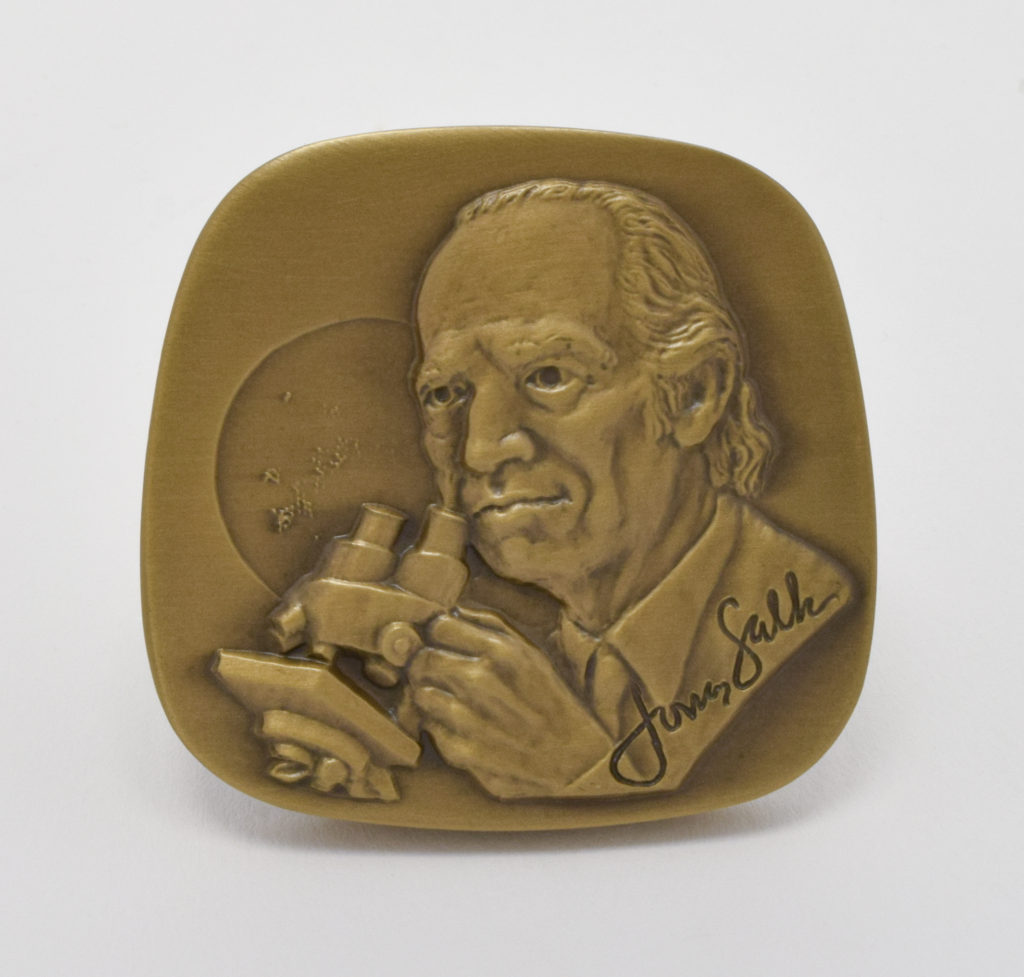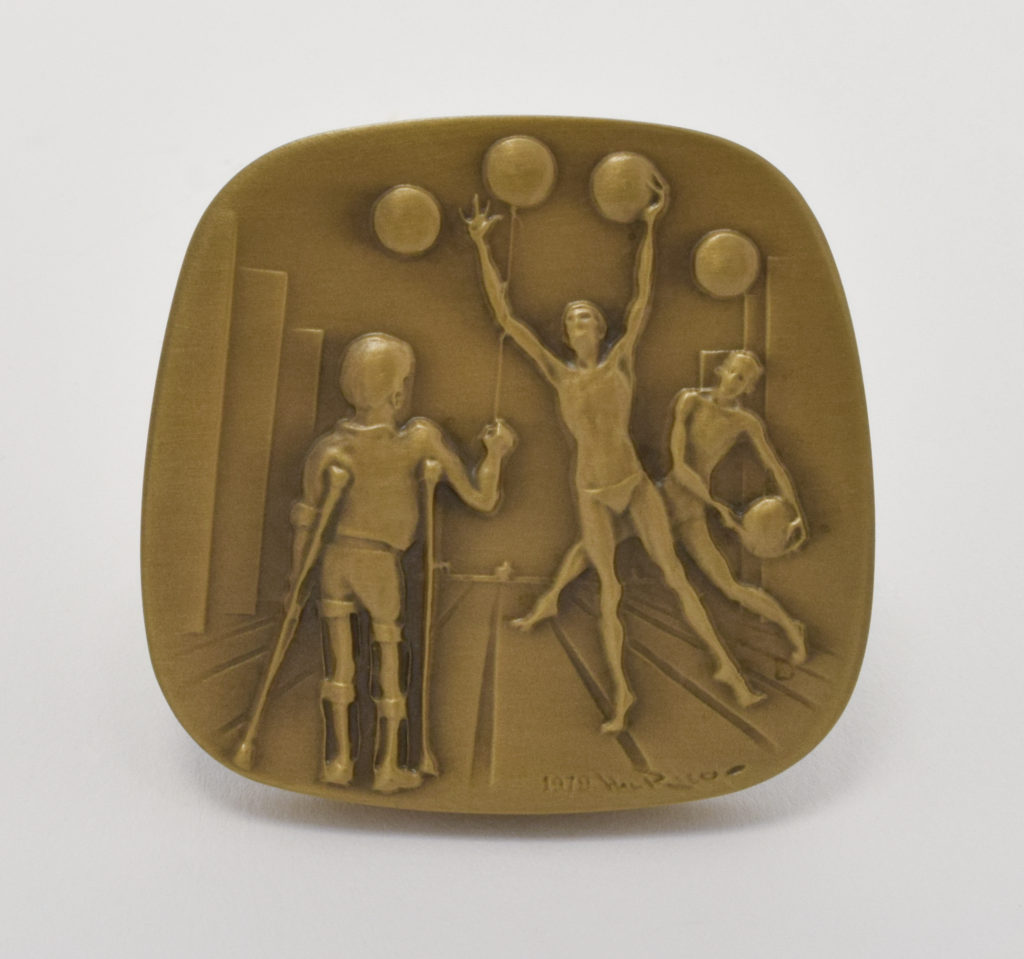Jonas Salk (1914–1995)
Hal Reed (Oklahoma 1921-California 2003)
USA, 1980
Bronze, h. 1 ¾ x w. 1 ¾ in.
Cincinnati Skirball Museum, Jewish-American Hall of Fame Collection, gift of Mel and Esther Wacks, Debra Wacks, and Shari Wacks, 2019.7.23 & 2019.7.24
Virologist Jonas Salk was born in New York City to Russian-Jewish immigrants. After graduating from the City College of New York, he became a research fellow at the University of Michigan where he helped in the development of an influenza vaccine and served as a member of the United States Army Influenza Commission. Moving to the University of Pittsburgh’s School of Medicine, Salk became Research Professor of Bacteriology in 1949, Professor of Preventive Medicine five years later, and finally Professor of Experimental Medicine (1957-1963). At Pittsburgh, Salk did research into poliomyelitis, developing immunological methods to distinguish different types of the virus. He then developed a vaccine prepared by inactivating the virus. Field trials conducted in 1954 confirmed the effectiveness of the vaccine, making it the first weapon against the polio scourge. In the years immediately before mass inoculations with the Salk vaccine began, there was an average of 25,000 cases a year in the United States; in 1969 not a single death from polio was reported in the nation, and the disease has virtually been eradicated worldwide. For his pioneering accomplishment, Dr. Salk received many honors and awards, including the Presidential Citation and the Congressional Medal for Distinguished Achievement. Salk served as an expert on virus diseases for the World Health Organization in 1961, and two years later founded the Salk Institute for Biological Studies at La Jolla, California, which he directed until his death. Salk spent his last years searching for a vaccine against AIDS.


